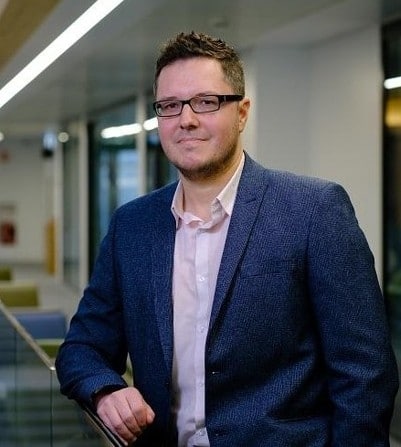Sign-up here to receive the monthly iED bulletin
Sign-up here to receive the monthly iED bulletin

Marc Eatough is Head of Regional Development and Engagement at the University of Leeds, a role he has held since 2022. He was previously Major Research Initiatives Manager. Prior to joining the University in 2018, Marc worked in senior economic consultancy and public policy positions focused on urban and regional policy and strategy, project appraisal, business case development, evaluation and economic impact.
Marc has been a member of the iED since 1999, when he was Economic Development Officer at Durham City Council, before moving on to a similar brief at Southampton City Council, and later joining the University of Southampton in a business development role. After spells in consultancy at genecon and ICF International, only separated by a six-month secondment at Leeds City Region Secretariat facilitating the preparation the LEP’s Strategic Economic Plan, Marc spent four years as Lead Policy Manager at the Leeds City Region Enterprise Partnership and West Yorkshire Combined Authority.
“It seems a long time ago now, but at Durham you had to have a professional qualification and the Council encouraged applications for iED membership to support colleagues’ CPD and help the overall quality structures they had in place,” he explained. “In those early days, there was an active membership in the North East, with lots of field trips and workshops, and I continued my membership when I moved to Southampton were there was also a regional branch, and again when I moved to Yorkshire Humber. I have retained my individual membership ever since as the primary way to keep up-to-date with what is going on in the sector.”
Over the years, Marc has actively participated in iED events, and through membership has built up networks wherever he has been. “Being part of a professional body, and part of a community, is always a good thing and I have had great value from it,” he said. “I often say to people that I am a full member of the Institute of Economic Development, and this has been important in all my roles. Going back to my consultancy days, in particular, iED CPD became linked to my professional development. More recently, free-to-all online webinars have been more beneficial, beginning during the pandemic. There has always been a reason why I have kept up my membership. Having a body recognising economic development as a core function is so important and I see that as really valuable.”
Marc added: “It is helpful to have a cross-sector make-up of members, whether it is private consultancies, local authorities, or the growing number of stakeholders from the university sector, as part of the iED. Overall, the platform to bring those different voices and perspectives together, and the insights that can be gained from each other, is so impactful.”
Highlighting How Universities Can Help Drive Local and Regional Economies, an insight report produced by the iED which features Yorkshire Universities as a good example of support for the higher education sector, Marc commented:
“From a university perspective, if you look at government policy now and HEIs playing a greater role in terms of their civic mission and their economic development role supporting the place agenda, there is an opportunity to grasp. We have a group of iED members working across the higher education space and therefore huge potential to mobilise and connect these institutions. The report produced by the Institute and AtkinsRéalis is great, and its content supports both the target activities of the iED and objectives around maximising what universities can bring to this space. Triple or quadruple helix partnerships, as some call them, between universities, local government and business with links into the communities are so important, especially in a challenging fiscal environment.”
Case study developed: September 2025